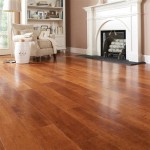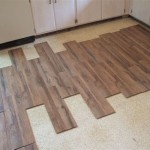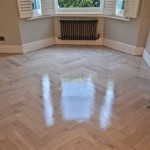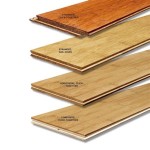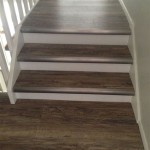Exploring the Pros and Cons of Vinyl Flooring
Vinyl flooring has become increasingly popular in recent years, offering a wide range of benefits and drawbacks. Here's a comprehensive exploration of the pros and cons of vinyl flooring, helping you make an informed decision about whether it's the right choice for your home:
Pros of Vinyl Flooring:
- Durability and longevity: Vinyl flooring is highly durable, able to withstand heavy foot traffic and everyday wear and tear. It also resists scratches, dents, and fading, ensuring a long lifespan.
- Waterproof and moisture-resistant: Vinyl flooring is 100% waterproof, making it ideal for areas prone to moisture, such as bathrooms, kitchens, and basements. It won't buckle or warp when exposed to water, providing peace of mind.
- Easy to clean and maintain: Vinyl flooring is low-maintenance, requiring only regular sweeping and mopping. Its smooth surface prevents dirt and grime from accumulating, making it easy to keep clean.
- Comfortable underfoot: Vinyl flooring provides a comfortable walking surface, thanks to its slightly cushioned feel. It reduces noise and is gentle on joints, making it a great option for areas where comfort is a priority.
- Versatile and stylish: Vinyl flooring comes in a vast array of styles and patterns, from realistic wood and stone looks to bold colors and designs. It can complement any décor, adding style and sophistication to any space.
Cons of Vinyl Flooring:
- Potential for off-gassing: Some vinyl flooring products may emit volatile organic compounds (VOCs) during installation and for a short period afterward. These VOCs can contribute to indoor air pollution and cause health concerns. However, it's important to note that high-quality vinyl flooring options with low VOC emissions are available.
- Installation can be tricky: Professional installation is recommended for vinyl flooring, especially for large areas or complex layouts. Improper installation can compromise the durability and lifespan of the flooring.
- Not as eco-friendly as some other options: Vinyl flooring is typically made from polyvinyl chloride (PVC), a non-biodegradable material. This can be a concern for those who prioritize环保性.
- Susceptible to heat damage: Vinyl flooring can melt or buckle when exposed to high temperatures. Therefore, it should not be installed near heat sources such as fireplaces or stoves.
- Limited resale value: Vinyl flooring is generally considered a lower-cost flooring option, which may impact the resale value of a home compared to more premium flooring materials, such as hardwood or tile.
Conclusion:
Vinyl flooring offers a combination of durability, waterproofness, and style that makes it a popular choice for many homeowners. However, it's essential to weigh the potential drawbacks, such as VOC emissions and limited resale value, before making a decision. By carefully considering the pros and cons of vinyl flooring, you can determine if it's the right option for your home and lifestyle.

Exploring Luxury Vinyl Flooring Advantages And Disadvantages In 2024 Factory Liquidators

Pros Cons Of Luxury Vinyl Flooring Remodel Works

Vinyl Flooring Vs Laminate The Pros And Cons

Pros Cons Of Spc Flooring 50 Floor

Is Lvp Flooring Good The Pros And Cons Floorings

Laminate Vs Vinyl Flooring Which Is The Best Option

Pros And Cons Of Installing Vinyl Flooring On Stairs
What Is Lvp Flooring Thumbtack Com

Vinyl Vs Laminate Flooring Pros Cons Carpet One

Pros And Cons Of Installing Vinyl Flooring On Stairs
See Also
